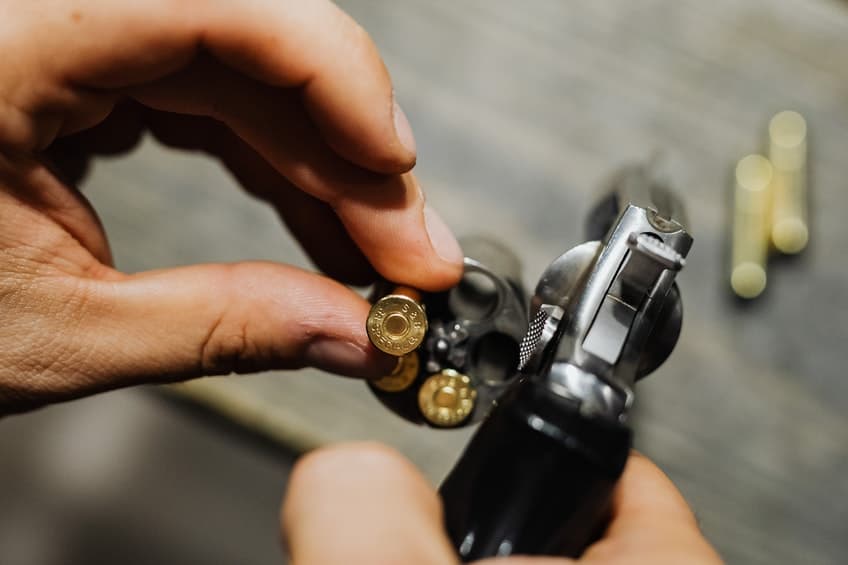One of the biggest debates in the world of shooting is which self-defense caliber is best: 9mm or .45 ACP. It’s an argument that has raged for over a century and will not end soon. Just like the Joe Montana vs. Dan Marino argument, it’s an age-old question in the shooting community.

To get an analytical perspective on the controversial concept of self-caliber discussion, read Legionary‘s comprehensive article comparing the world’s top self-defense guns.
Confused about which gun to choose for self-defense? This easy-to-understand article will make your decision a breeze.
Quick Overview of The Two Common Competitors
When it comes to the greatest calibers for self-defense, the two most common contenders to consider are:
- 9mm: It is a popular choice since it provides a good mix of power, ability, and recoil.
- .45 ACP: With over 100 years of expertise, this cartridge is often the ultimate alpha stopper.
Comparison Between 9mm and .45 ACP
Recoil
The recoil of your firearm is likely the essential aspect of self-defense. You want to make sure that you are shooting a gun that you can control while also hitting your target on every shot. Likewise, a firearm with too much recoil can cause you to lose your grip and thus, also cause you to miss your mark.
If you’ve never carried a gun before, you could be shocked by the amount of recoil you feel after shooting a bullet. Also, expect a more extensive pushback if you’ve only fired a 9mm and never a.45 ACP.
The recoil on the 9mm is fast and light. As a result, you can execute more straightforward move shots with this round. Firing the.45 ACP, on the other hand, generates a large amount of recoil. It has a maximum pushback strength of 10 pounds. Shooting a.45 demands a lot of experience and training to manage this round properly.
Size
Bullet size can influence shooting performance in the realm of weapons. Size can also indicate velocity profile, action on hit, and various other aspects. Furthermore, size reflects the total of gunpowder in a cartridge. Therefore, a bigger cartridge often indicates more gunpowder, which equals more power when fired from the chamber.
9mm is a shorter, more compact size with less power. On the other hand, the. 45 ACP is bigger, heavier, and broader in comparison. As a result, it can store more gunpowder and have more stopping power.
Ballistics
One of the most critical differences between a 9mm and a 9mm ballistics. 45 is “stopping power.” Although pistols are not strictly considered firearms with stopping power, this trait can still be ascribed to them.
A 9mm is lighter in weight than a.45 ACP. As a result, it goes faster and penetrates deeper into the target. Furthermore, it has a faster velocity, providing more halting force to stop the bullet. Meanwhile, the.45 ACP bullet is a strong round with a considerable expansion upon contact due to its hollow-point construction. In addition, it has a lower velocity due to its higher weight.
The.45 ACP is commonly referred to as the 9mm self-defense gun for adults. Due to its greater stopping power, the United States military embraced it in 1911. The.45 ACP is the most powerful in terms of knockout power.
Velocity
In handguns, the rule of thumb is that the greater the velocity, the greater the trajectory. It indicates that a bullet with more velocity will go further in a single direction than one with a slower speed.
In contrast, 9mm has a faster velocity, averaging 1,200 fps, with little to no bullet loss at short and mid ranges. It is also capable of penetrating deeper.
With a speed of 830 fps, the.45 ACP is slower than the 9mm. As a result, it has a very short bullet travel overshot range. However, it cannot penetrate deeply into targets because of its huge diameter.
Cost
Most of you might know that ammunition is not cheap. Buying a few rounds at the range can add up. With the rising cost of living, many people are cutting corners everywhere they can. But are you potentially sacrificing your safety for saving a few bucks?
In general, 9mm ammo is less expensive and more widely available.45 ACP ammo. It is also the most cost-effective pistol centerfire ammunition on the market. As a result, if you’re searching for a low-cost solution, the 9mm is a good bet. Legionary has detailed everything in its post if you want to know more about the cost analysis.
Wrapping Up
Ultimately, which self-defense caliber you end up choosing should be based on your preferences. While the 9mm is often recommended for beginners because of its lighter recoil and more manageable kick, the stopping power of the .45 is not to be overlooked. And while each caliber has its own set of pros and cons, you now know enough about each firearm that it’s up to you to decide what kind of gun best suits your needs. But whatever you choose, always remember to practice safety with your gun.